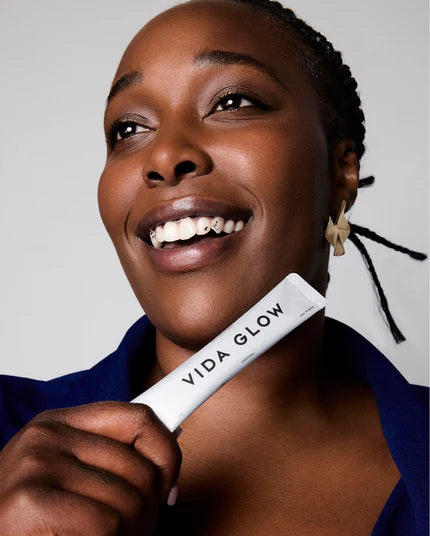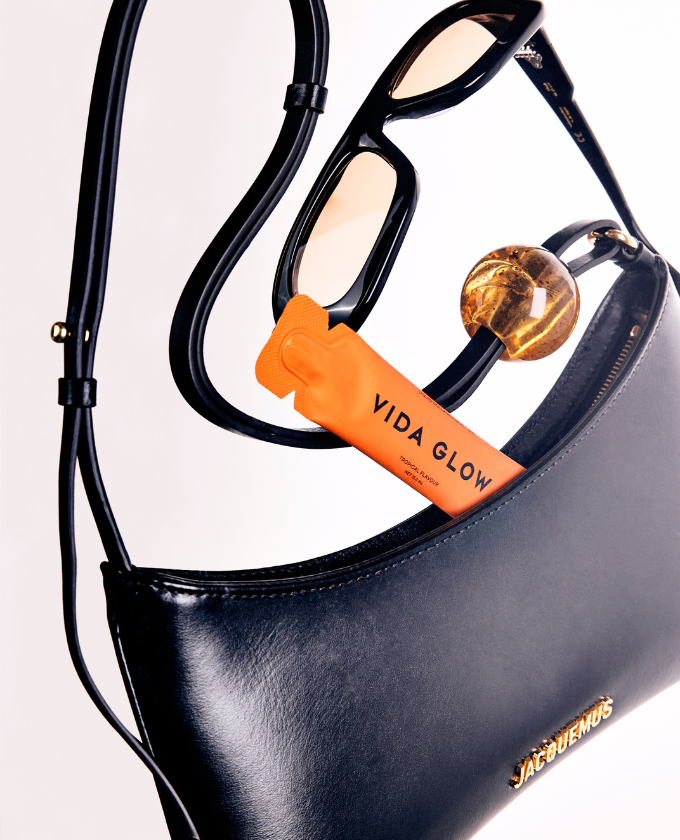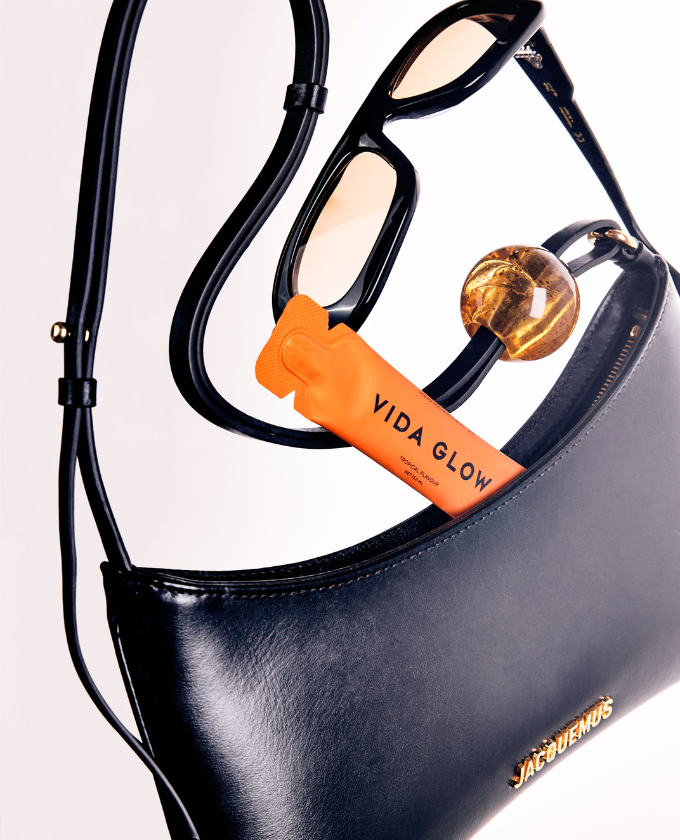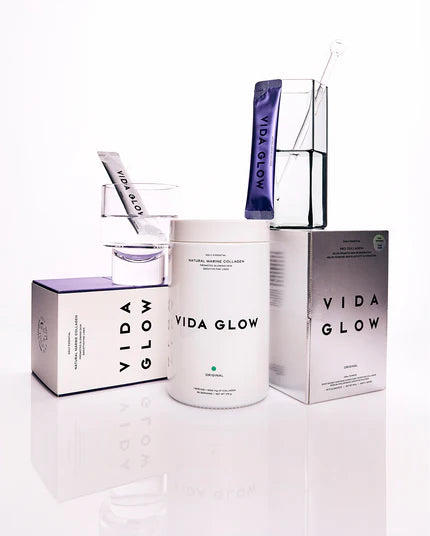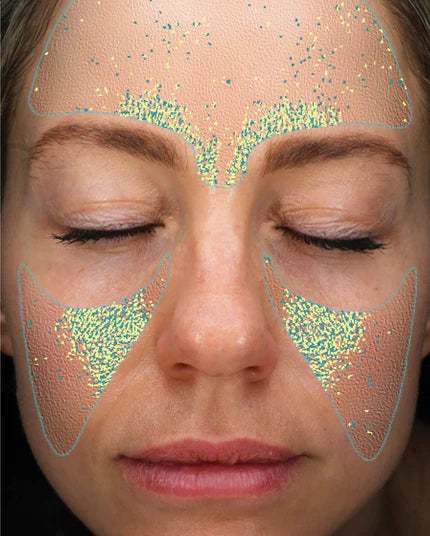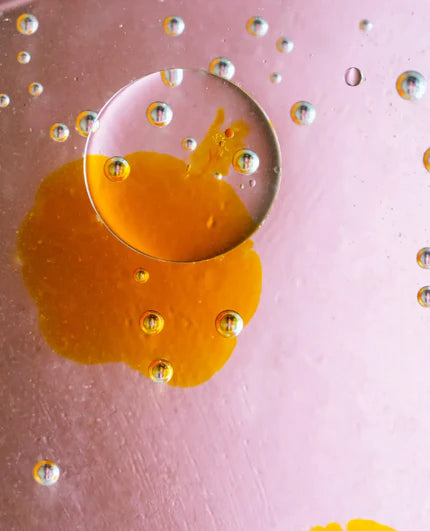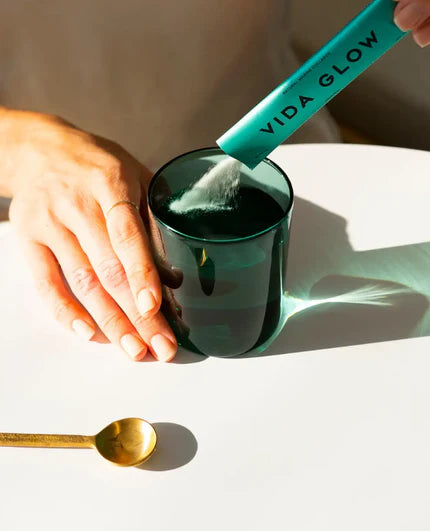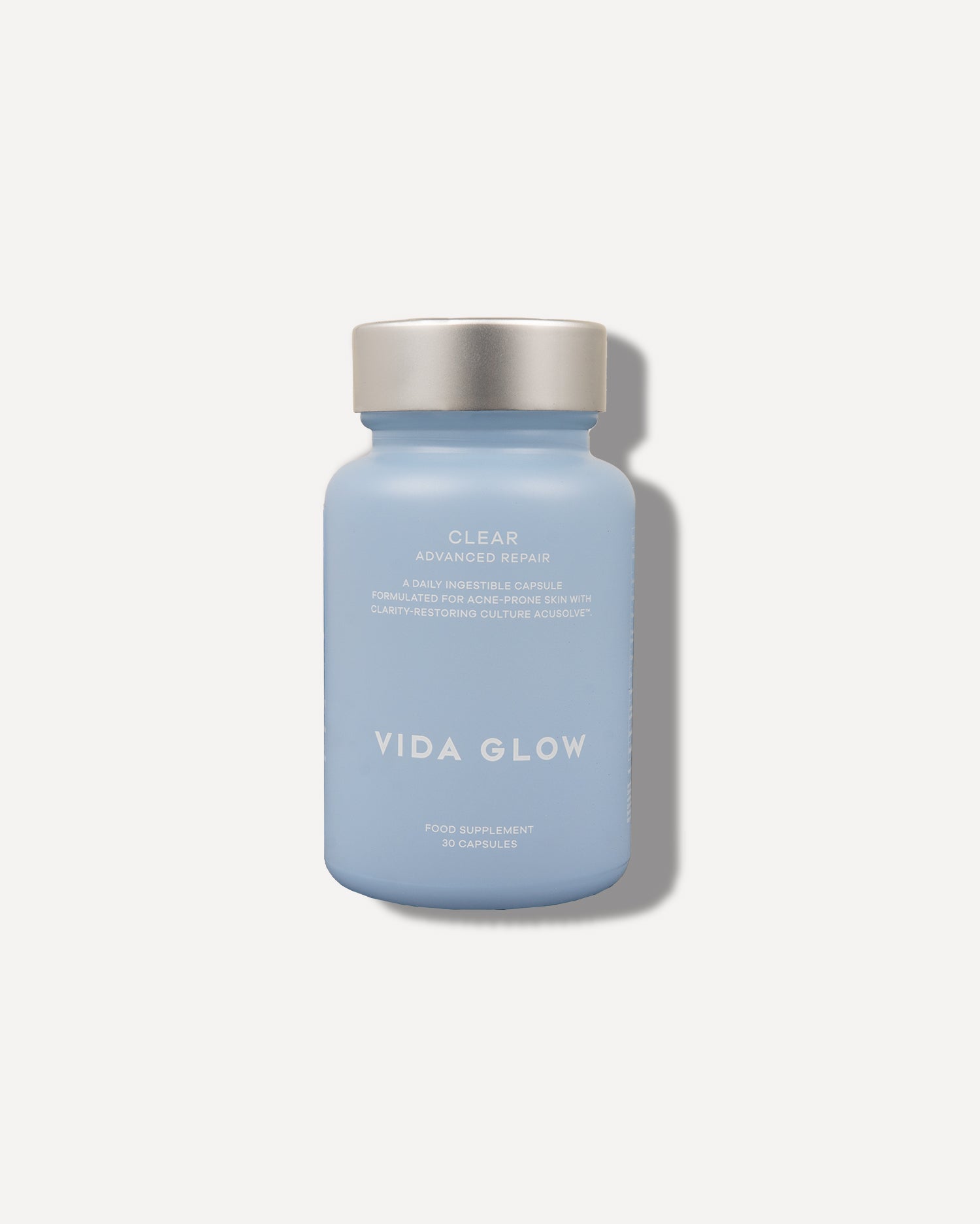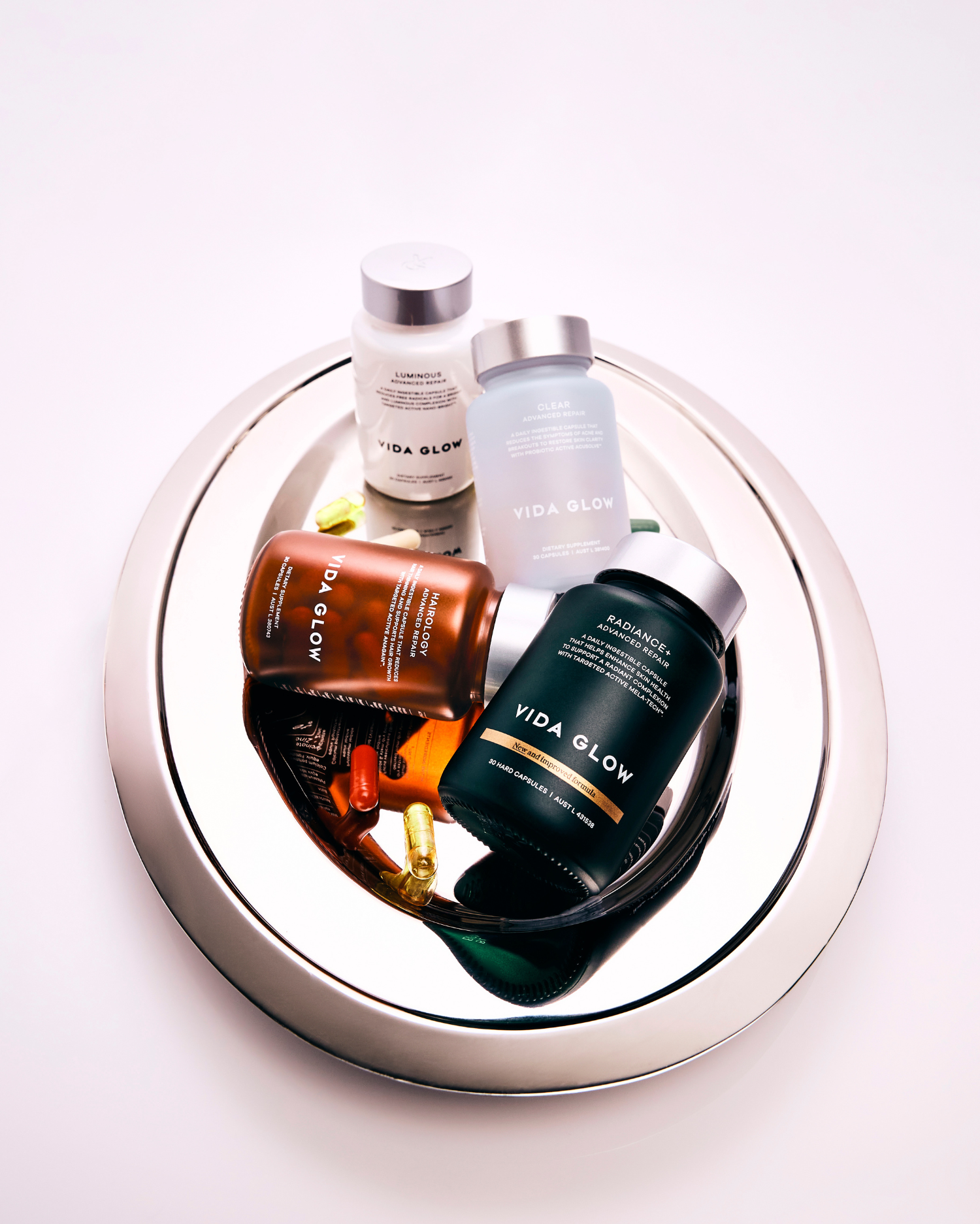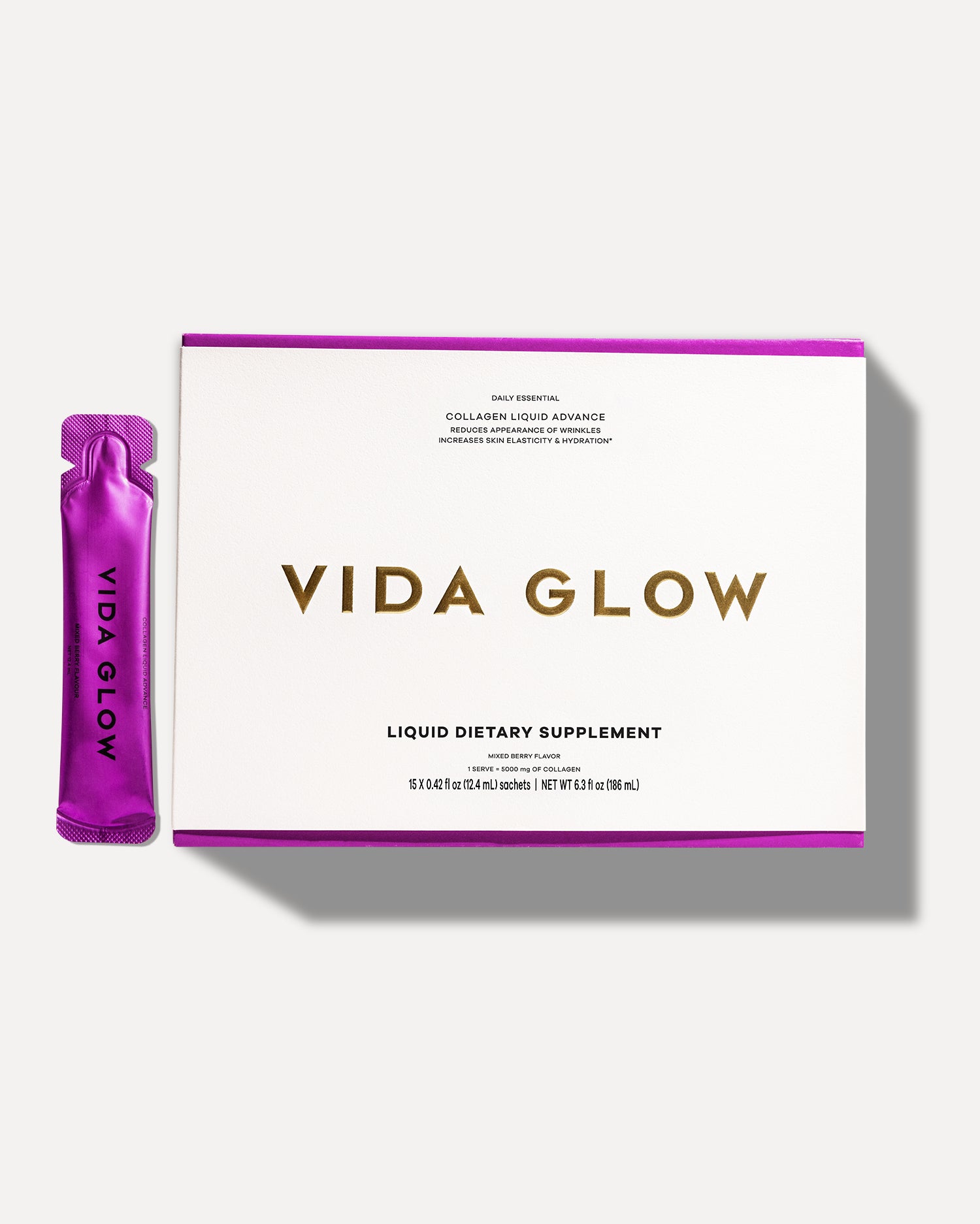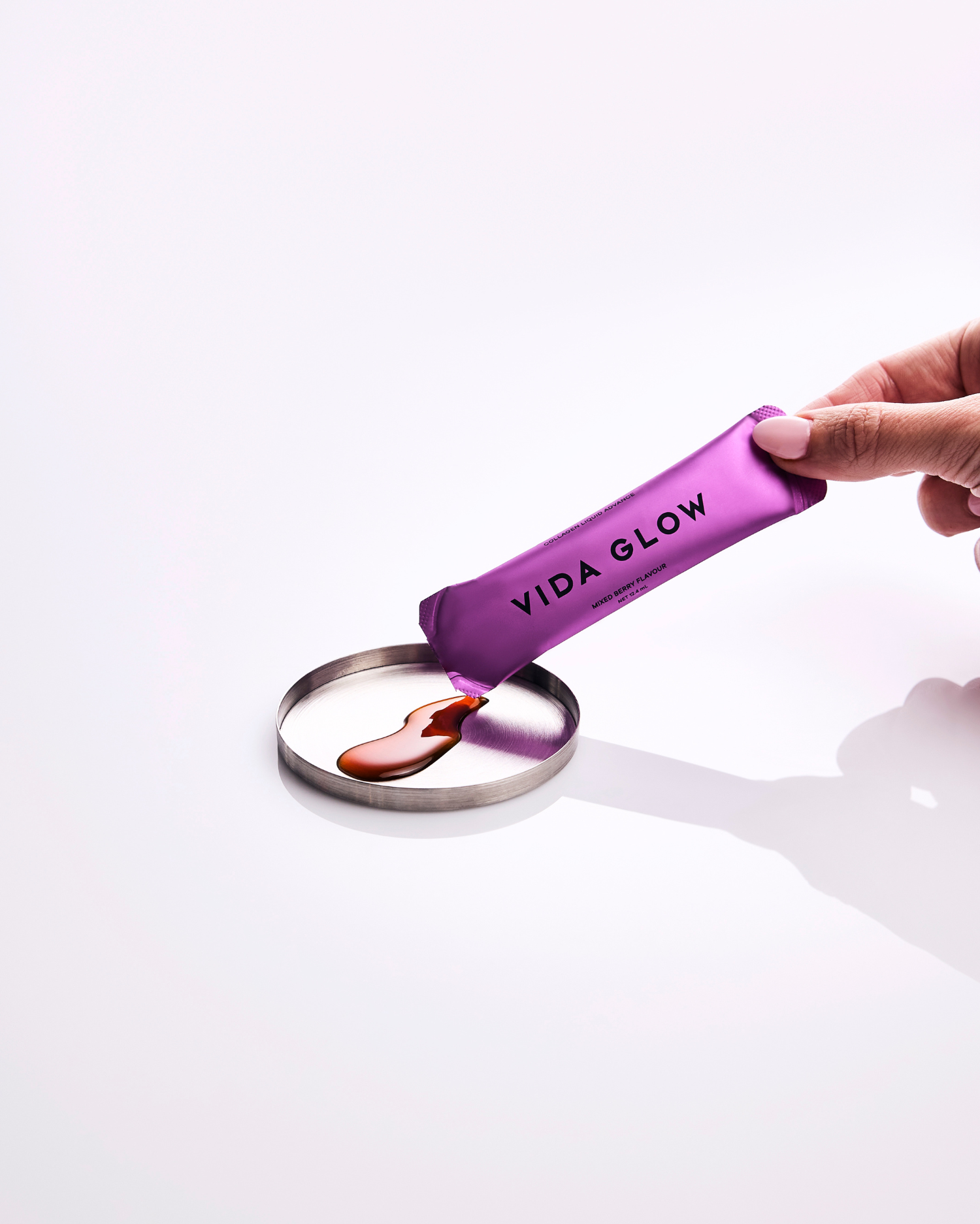You've heard the collagen craze. But do you know why it's so important for skin health? There's a lot to learn about collagen. So let’s break down the facts.
And do you know what type of collagen you should be taking? What about marine collagen vs bovine collagen - what's better? Well, what if we told you there are over 20 types of collagen within your body. On top of that, different types of collagen are better suited to particular parts of your body.
There's a lot to learn about collagen, and we don’t blame you if you’re a bit confused. Luckily, it's what we love, and it's what we do. So, get ready to absorb some essential collagen info.
What is Collagen?
Collagen is the most prominent protein in the body, providing structural support to bones, skin, muscles, tendons, and ligaments. Essentially, it’s the glue that holds everything together. It's also key to maintaining the youthful appearance of skin, hair, and nails ¹.
As we age, particularly from our mid-twenties, collagen production slows. This decline leads to visible signs of ageing such as fine lines, wrinkles, and a loss of elasticity and firmness in the skin ². That's where anti-ageing collagen supplements come in, helping to replenish the body’s natural collagen stores and support smoother, more youthful skin.
Collagen is also crucial for hair health. Reduced collagen levels can result in hair loss and breakage ³. Adding marine collagen to your daily routine can help fortify hair strands, improving strength and resilience for healthier, fuller-looking hair. Additionally, collagen helps combat brittle nails, making it an all-round essential for beauty and wellness ⁴.
Understanding the 5 Collagen Types
While there are many types of collagen (over 20), only three of them make up around 80-90% of the body’s collagen. These are Type I collagen, Type II collagen, and Type III collagen. But there are other collagen types that are important to note. So here we will discuss the five key collagen types, what they do.
Type I Collagen
Collagen type 1, known for its strength and rigidity, is found in bones, tendons, ligaments, and the dermis of the skin. Type 1 collagen is like the backbone of our skin. It forms a framework of fibres that give our skin its firmness and resilience ⁵. These collagen fibres act like scaffolding, holding our skin together and preventing wrinkles. By maintaining the integrity of our skin's structure, type 1 collagen helps keep it looking youthful and vibrant.
Type II Collagen
Collagen type 2 is an important part of cartilage, which is the cushioning material found in our joints. It gives cartilage its ability to be flexible and bounce back, providing support for our joints ⁶. This collagen type plays a big role in keeping cartilage strong and functioning properly.
Type III Collagen
Type 3 collagen, often found alongside type I collagen, plays a vital role in making our skin elastic. It's present in tissues such as blood vessels, the walls of hollow organs, and most importantly, our skin. This collagen type gives our skin the ability to stretch and recoil, allowing it to bounce back after being stretched. It helps firm up sagging skin, contributing to a smooth, youthful appearance 5. Without type III collagen, our skin would lose its ability to stretch and regain its shape, leading to sagging and wrinkles. Therefore, this collagen type is essential for maintaining healthy and elastic skin. So the key collagen types for youthful, bouncy skin are collagen type 1 and 3.
Type IV Collagen
Type 4 collagen creates a thin network-like structure that supports and holds together the cells in basement membranes. It provides a strong foundation and acts like a filter for these cells 7. This collagen type is super important for keeping tissues, like the kidney, lungs, and the barrier protecting the brain, in good shape.
Type V Collagen
Type 5 collagen is usually found together with type I collagen, and it helps organise and arrange collagen fibres in our bodies. It's present in many connective tissues, like our skin and tendons. Type V collagen also helps keep our hair, the outer layer of our eyes (called the cornea), and the placenta structured and stable 8.
What is marine collagen? Where is it sourced?
Marine collagen is a type of collagen sourced from fish skin, containing primarily Type I collagen with some Type III. These collagen types are beneficial for maintaining the health of skin, hair, and nails, making marine collagen a popular beauty supplement9. Vida Glow’s formulation includes collagen peptides from different fish species to provide a complete amino acid profile and ensure varied sources.
This collagen is derived from fish that are sourced from open-water farms in Europe as a by-product of the food industry. Fish skin that would otherwise go to waste is hydrolysed, creating a bioavailable collagen supplement. This process utilises materials that would be discarded, turning them into an ingestible product without increasing environmental impact.
Vida Glow partners with suppliers who meet international sustainability standards, helping to support environmental and social compliance within the industry.
As a naturally fish-based product, marine collagen is also suitable for pescatarian diets or for those choosing to avoid beef or pork.
What are the benefits of marine collagen?
Natural Marine Collagen is clinically proven to firm skin – and supports thick hair and strong nails. Within weeks of beginning supplementation, Vida Glow’s community experience more hydrated skin and the fast growth of baby hairs and nails. After six to 12 weeks, fine lines and wrinkles are softened and smoothed and skin’s elasticity is improved. In a 2018 independent, double-blind and placebo-controlled clinical trial, 2.5-grams of hydrolysed marine collagen was supplemented daily for 12 weeks, finding:
More than 70% of subjects experienced significant improvement in the appearance of crow’s feet wrinkles.
And, 60% of subjects experienced significant improvement in the appearance of perioral wrinkles (1).
Clinically proven to stimulate collagen production, marine collagen supports the natural ageing process with tangible results for skin, hair and nails.
Users may choose marine collagen over bovine collagen for its higher bioavailability, meaning it’s more easily absorbed by the body, leading to potentially faster results. Marine collagen is especially rich in Type I collagen, which directly supports skin, hair, and nail health, making it an ideal option for those prioritising beauty-related benefits.
How to take marine collagen?
Vida Glow makes taking marine collagen fuss-free. So you can stay consistent and achieve tangible results. And with marine collagen’s high potency and low dosage weight, clinically proven results are seen with as little as one daily 3-gram serve.
With on-the-go sachets, Natural Marine Collagen is taken in three convenient steps: Tear. Stir. Sip. Dissolve your natural flavour of choice or unflavoured Original into any drink – hot or cold – and commit to daily marine collagen supplementation.
What is bovine collagen? Where is it sourced?
Bovine collagen is collagen peptides extracted from the hides, or joints of cattle.
Bovine collagen is a type of collagen derived from the hides of cows, primarily composed of Type I and Type III collagen. These types of collagen are essential for supporting the body’s structural framework, particularly for skin, bones, tendons, and connective tissues.
Known for its versatility, bovine collagen is commonly used to support joint health, improve skin elasticity, and promote overall tissue repair. It is often favoured for its cost-effectiveness and availability, making it a popular choice for those seeking general wellness benefits. Hydrolysed bovine collagen is also easily digestible, allowing the body to absorb and utilise it effectively for a wide range of health benefits.
How to take bovine collagen?
Bovine collagen is most often supplemented as a peptide powder, dissolved in liquid.
Compared to marine collagen, bovine collagen can have a high dosage weight. In your routine, this means servings may be as large as 20-grams or designed to be supplemented throughout the day – compared to marine collagen’s 3-gram daily serve.
Key differences between marine and bovine collagen
You may be wondering still, what are the main differences between marine collagen and bovine collagen? Let's break it down below.
Source and Composition
Marine collagen is sourced from fish skin and is primarily rich in Type I collagen, which specifically supports skin, hair, and nail health. Bovine collagen, derived from cow hides, contains both Type I and Type III collagen, benefiting not only skin but also joints and connective tissues. This composition makes bovine collagen a versatile option for broader wellness.
Bioavailability and Absorption
Marine collagen has a smaller particle size, making it highly bioavailable and quickly absorbed by the body. This allows marine collagen to potentially deliver faster results, especially in areas like skin hydration and elasticity. Bovine collagen, while still effective, may not absorb as quickly due to its larger molecular structure.
Sustainability Considerations
When responsibly sourced, marine collagen is often seen as more sustainable, as it utilises fish skin by-products that would otherwise go to waste. Bovine collagen, however, depends on cattle farming, which has a larger environmental impact. This difference may be important for those seeking a more eco-friendly collagen source.
Dietary Preferences
Marine collagen is suitable for pescatarians or those who avoid land-based sources like beef, while bovine collagen can be used by individuals who choose land-sourced options. This distinction allows users to select a collagen type that aligns with their dietary needs
Is marine collagen better than bovine collagen?
Marine collagen is a naturally small molecule compared to bovine collagen – which can mean its molecular weight can be even smaller once hydrolysed in some formulas. This has led some research to suggest hydrolysed marine collagen is absorbed 1.5 times more effectively than other forms of collagen (2).
This means marine collagen’s fast and effective formulas delivers firmer skin, thicker hair and stronger nails – and in as soon as 12 weeks.
With its targeted beauty benefits in one daily routine, marine collagen is the foundation of Vida Glow – and real results.
Read more Collagen Articles here:
Do Collagen Supplements Work?
Collagen Benefits for Skin
How Long Does it Take for Collagen to Work?
Marine Collagen Collection
Customer Reviews
Sources
1. Oesser, Stefan. "The Oral Intake of Specific Bioactive Collagen Peptides Has a Positive Effect on Hair Thickness." Nutrafoods, vol. 1, 2020, pp. 134–138. https://doi.org/10.17470/NF-020-0019.
2. Proksch, Ehrhard, Marcus Schunck, Vanessa Zague, Daniela Segger, Johannes Degwert, and Steffen Oesser. “Skin Physiology and Safety of Oral Supplementation with Specific Collagen Peptides in Humans.” Skin Pharmacology and Physiology, vol. 27, no. 3, 2014, pp. 113–119. https://doi.org/10.1159/000357712.
3. Mock, Donald M. "Biotin: From Nutrition to Therapeutics." The Journal of Nutrition, vol. 147, no. 8, 2017, pp. 1487–1492. https://pmc.ncbi.nlm.nih.gov/articles/PMC5525106/
4. Hexsel, Doris, et al. "Oral Supplementation with Specific Bioactive Collagen Peptides Improves Nail Growth and Reduces Symptoms of Brittle Nails." Journal of Cosmetic Dermatology, vol. 16, no. 4, 2017, pp. 520–526. Wiley Online Library, https://doi.org/10.1111/jocd.12393.
5. Reilly, David M., and Jennifer Lozano. "Skin Collagen through the Lifestages: Importance for Skin Health and Beauty." Plastic and Aesthetic Research, vol. 8, 2021, article 2. OA Publishing, https://doi.org/10.20517/2347-9264.2020.153.
6. Martínez-Puig, Daniel, et al. "Collagen Supplementation for Joint Health: The Link between Composition and Scientific Knowledge." Nutrients, vol. 15, no. 6, 2023, p. 1332. MDPI, https://doi.org/10.3390/nu15061332.
7. Tanjore, Harikrishna, and Raghu Kalluri. "The Role of Type IV Collagen and Basement Membranes in Cancer Progression and Metastasis." The American Journal of Pathology, vol. 168, no. 3, 2006, pp. 715–717. PubMed Central, https://doi.org/10.2353/ajpath.2006.051321.
8. Birk, D.E. "Type V collagen: heterotypic type I/V collagen interactions in the regulation of fibril assembly." Micron, vol. 32, no. 3, 2001, pp. 223–237. https://www.sciencedirect.com/science/article/abs/pii/S0968432800000433
9. Oesser, Stefan. "The Oral Intake of Specific Bioactive Collagen Peptides Has a Positive Effect on Hair Thickness." Nutrafoods, vol. 1, 2020, pp. 134–138. https://doi.org/10.17470/NF-020-0019.

